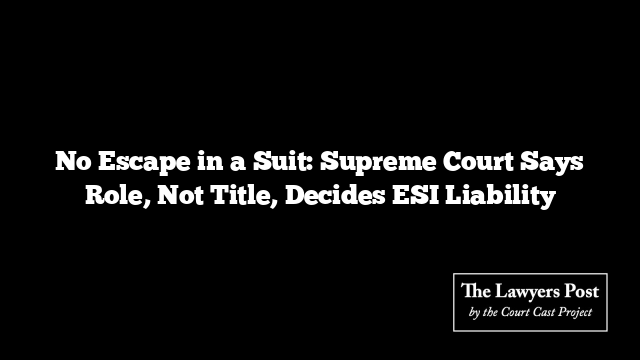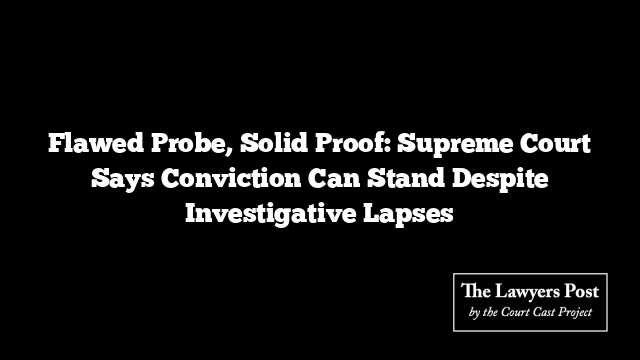In a judgment that cuts through the corporate fog of titles and job descriptions, the Supreme Court has drawn a firm line: if you control the levers of a workplace, you’re accountable—regardless of what your business card says.
The country’s highest court upheld the conviction of a man referred to as a General Manager, holding him criminally liable under the Employees’ State Insurance Act, 1948, for failing to deposit contributions deducted from employees’ salaries. The ruling clarifies that anyone who acts as an agent of the owner or exercises supervisory control over an establishment can be nailed as the ‘principal employer’ under the law—even if their official designation suggests otherwise.
The convicted individual tried to wriggle out by claiming he wasn’t the General Manager at the time and had no formal status as a principal employer. His argument? That the burden of remittance lay squarely with the company. The Court wasn’t buying it.
In an opinion authored by Justice Ahsanuddin Amanullah, the bench (which also included Justice Sudhanshu Dhulia) brushed aside the defense, stating plainly: it’s not about the name of the position—it’s about the function performed. If you’re calling the shots, you’re holding the liability.
The Court pointed to Section 2(17) of the ESI Act, which defines the term ‘principal employer’ and includes anyone acting as a “managing agent”—a role the appellant, by evidence, appeared to have fulfilled. Since he couldn’t convincingly disprove his managerial involvement, he was squarely within the statute’s net.
The judges were particularly unmoved by the fact that employee contributions were deducted but never handed over to the ESI Corporation. That, they said, was an “aggravated” circumstance that didn’t just warrant conviction—it demanded no leniency.
Six months in prison and a ₹5,000 fine is what he’ll now have to serve, with the Supreme Court refusing to interfere.





